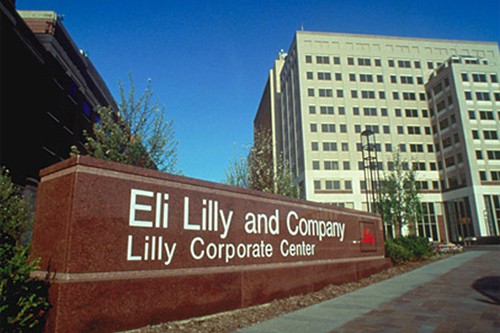
Eli Lilly has picked up its first approval for breast cancer drug abemaciclib – one of the top prospects in its pipeline – months ahead of schedule.
The US FDA has approved the CDK 4/6 inhibitor – which will be sold as Verzenio – as a combination treatment with hormone drug fulvestrant for hormone receptor-positive, human epidermal growth factor receptor 2-negative advanced or metastatic breast cancer that has progressed after endocrine therapy.
It is the third CDK 4/6 inhibitor to reach the market after Pfizer’s blockbuster Ibrance (palbociclib) – which reached the market in 2015 – and Kisqali (ribociclib) from Novartis which made its debut earlier his year. According to the FDA, however, the new drug has a characteristic that distinguishes it from its rivals.
“Verzenio provides a new targeted treatment option for certain patients with breast cancer who are not responding to treatment, and unlike other drugs in the class, it can be given as a stand-alone treatment to patients who were previously treated with endocrine therapy and chemotherapy,” said Richard Pazdur, director of the FDA’s Oncology Center of Excellence and acting director of the Office of Hematology and Oncology Products.
That could explain the rapid approval of Verzenio, which even with a speedy breakthrough designation has given the nod by the FDA well ahead of its scheduled review deadline in the first quarter of 2018.
Abemaciclib has been approved on the back of the MONARCH-2 with HR-positive, HER2-negative breast cancer that had progressed after treatment with endocrine therapy and chemotherapy after the cancer metastasized. The drug achieved an overall response rate of just under 20%, with a median duration of response of 8.6 months.
Lilly says it plans to introduce the drug in October and will price the drug at around $11,000 per month, in the same ballpark as the list prices of both Ibrance and Kisqali, although Novartis offers a flexible pricing scheme that it says carves almost a fifth off the average monthly price.
EvaluatePharma has predicted that despite its third-to-market position, abemaciclib could make around $1.8bn in sales in 2022, becoming one of the two biggest revenue drivers for the company along with new diabetes drug Trulicity (dulaglutide). Meanwhile, Ibrance saw sales almost triple to reach $2.1bn last year and has been tipped to become a $6bn-plus product in 2022, with Novartis’ and Lilly’s drugs jostling for second place in the market.
Lilly’s drug is associated with diarrhoea – seen in 86% of patients versus 25% of the placebo group in MONARCH-2 – which it says is manageable with anti-diarrhoeal drugs although analysts have suggested this could hold it back on the market. It does seem to be associated with a lower risk of neutropenia, according to recent data.




